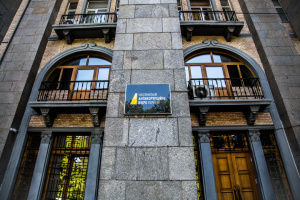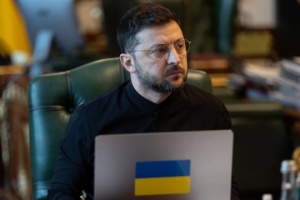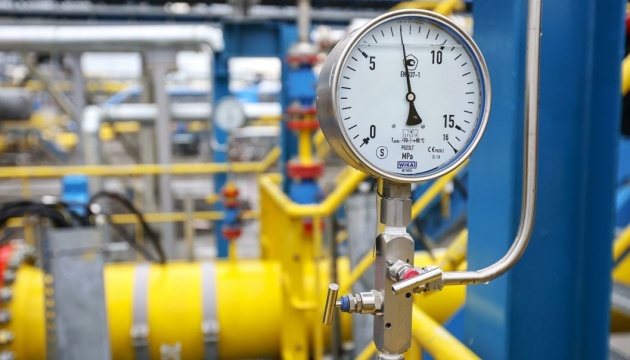
Ukraine - Hungary spat: Russia doing everything to pit neighbors against each other
The relations between Kyiv and Budapest are seeing yet another aggravation. This time it was due to Hungary signing with Russia’s Gazprom a 15-year contract for gas supply possibility, which entered into force on October 1. According to the deal, the Russian monopoly will annually supply 4.5 billion cubic meters of fuel to Hungary, including 3.5 bcm via Turkish Stream through Bulgaria and Serbia and 1 bcm – through Austria.
Against the background of the recent completion of Russia’s Nord Stream 2 construction (while the battle over its EU certification is currently underway), this is another deliberate and pre-planned blow to Ukraine's position as a gas transit power and a country that’s been at war with Russia for the past seven years.
Ukraine’s losses and risks
The current deal between Gazprom and Ukraine’s Naftogaz provides for the annual shipment of and payment for at least 40 bcm of gas until 2024. However, through its alternative pipelines, Gazprom may redirect all additional exports, stripping Ukraine of both major transit fees an important security factor.
"In fact, this is about Gazprom imposing the supply route and manipulating prices," Serhiy Makogon, CEO of Gas TSO of Ukraine, told UA:PBC on September 28.
Last year, Ukraine transmitted to Hungary nearly 10 bcm of gas.
“… All this transit may be put to a halt as we see that since October 1, Gazprom has not booked with the Hungarian operator any incoming capacity from Ukraine to Hungary. We conclude that Gazprom doesn’t plan to ship gas to Hungary via Ukraine from October 1," Mr. Makogon said.
For Ukraine, he explains, it’s not only about the loss of part of the transit flows it is also about Gazprom pursuing the policy of creating bypass gas pipelines and switching supplies to the Turkish Stream. Last year, they did the same with Bulgaria, Romania, and Greece, when Ukraine lost about 15 billion in transit over 12 months.
"The general security risk is that we will completely lose transit, including the one that’s currently in place through Slovakia. It is clear that Gazprom will gain leverage and influence over European countries, while toward Ukraine the Kremlin will have, say additional opportunities of "hybrid" influence and increased aggression in the east," said the chief of the GTS operator.
Now it turns out that Mr. Makogon's predictions have come true: on October 1, at the beginning of the new gas day (07:00), Gazprom halted gas transit to Hungary m through Ukraine. The press service of the Gas TSO of Ukraine said no applications for gas transit were received despite the fact that the capacity had been contracted for the entire gas year, from October 1, 2021, to September 30, 2022, in the amount of 24, 6 million cubic meters per day.
Kyiv's reaction: "This is a blow to us so we will respond"
The Ministry of Foreign Affairs of Ukraine has slammed Hungary's decision, canceling the meeting of the intergovernmental commission scheduled for September 29-30. According to Foreign Minister Dmytro Kuleba, the meeting was actually canceled even before the agreement between Budapest and Gazprom was actually signed off.
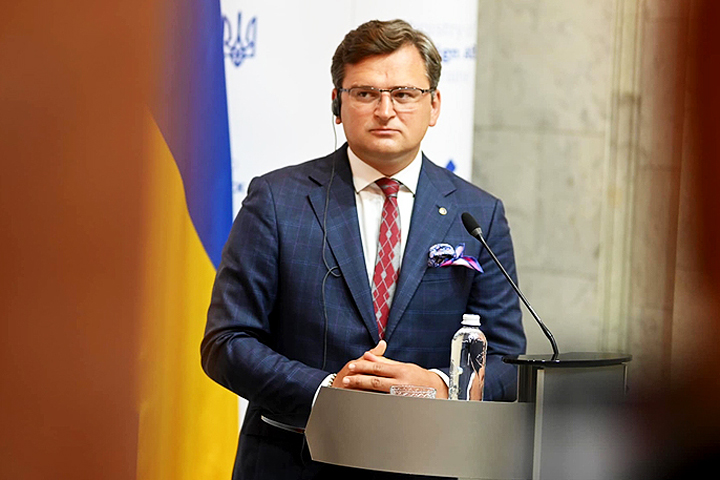
"We were already aware that the Russian delegation was heading there, that the deal would be signed. So as they were signing this agreement, they had already heard our position," the minister said.
Amid such developments, Dmytro Kuleba threatened retaliation.
"This is a blow, so we will respond accordingly because there should be no pity and no sympathy," said the Ukrainian Foreign Minister, announcing further measures "to protect the national interests of Ukraine in this situation."
However, what exactly is in question has not been specified. It would be logical to assume that this most likely means the appeal of the Ukrainian side to the European Commission to assess whether the Russo-Hungarian deal complies with European energy legislation.
The EU’s highest executive body has already begun the relevant audit of the deal.
European Commission Spokesman Tim McPhee said he had already asked his colleagues to check what the possible consequences could be.
Budapest's reaction: "European Commission attacking us… This is too much"
After the gas deal with Russia was inked, Hungarian Foreign Minister Péter Szijjártó referred to Ukraine's steps as "outrageous" and "unfriendly." Budapest summoned the Ukrainian ambassador for consultations, while MFA Ukraine went for a mirror move.
"We consider it a serious violation of our sovereignty and national security interests that they (Ukrainians, - ed.) seek to prevent a secure gas supply to our country," Szijjártó said.
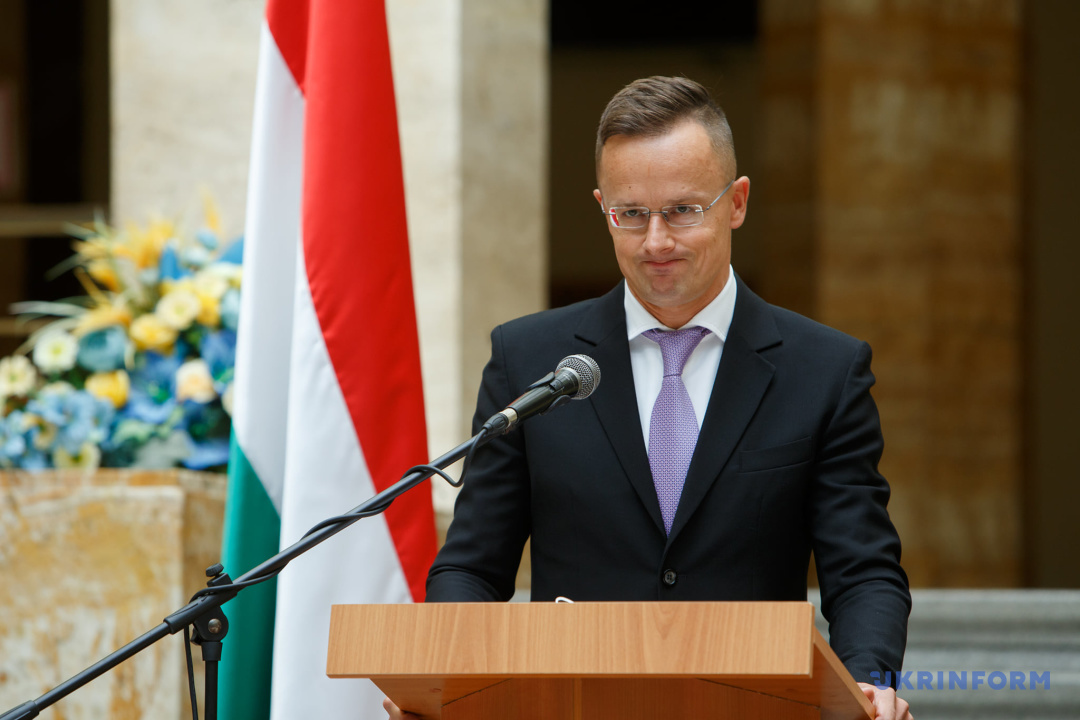
He also stressed that “attacks” on his country over the deal that “guarantees that the houses and apartments of Hungarian citizens will be heated and the industry will work” are “unacceptable.”
"Attacks on us by the European Commission over ensuring the security of our energy resources are just too much. (…) It is Budapest's sovereign right to sign energy supply contracts with whomever we want,” the head of Hungary’s diplomacy stressed.
Ukraine needs to change its policy and act, but how exactly remains an open question
The already difficult relations between the two countries due to the row over the distribution of Hungarian passports in Ukraine’s Berehove, accusations against Ukraine over education and language legislation, outright blackmail of Ukraine by Hungary which has been blocking Ukraine's path to join the EU and NATO, etc. have now become even more difficult. It is hard to call Ukraine’s southwestern neighbor a friend or even a partner, while the latest contract with Gazprom in the conditions of Russia’s ongoing aggression against Ukraine confirms such a suggestion. But what is today’s Hungary?
"This is Russia's Trojan horse in the European Union and in NATO. Why did this happen? That’s because for Russia, the collapse of these two structures is, so to speak, a sweet dream, their deepest wish, so they seek to achieve this in any way possible. So they’ve been looking for such ways in every country. And so it happened that in Hungary, with Mr. Orban and Mr. Szijjártó, they succeed,” Ukrainian Foreign Minister (2007-2009) Volodymyr Ohryzko told Ukrinform.
We also know what tools Russia uses to this end. It’s a notorious tradition and practice of Russian secret services to buy politicians.
"If we recall Mr. Orbán’s biography, he used to be one of the first Hungarian Euro-optimists, that is, an ardent supporter of all liberal European values. But then, apparently, he turned into a Eurosceptic, and after Hungary joined the EU and NATO, he began to pursue a policy that went against what the country had to do when it became a member of these structures. I have no doubt that this is the result of the thought-out efforts by the Russian special services toward the current leadership in Hungary," the diplomat said.
Is it possible to change anything about this leadership’s stance today? Mr. Ohryzko believes it’s not.
"In this case, our ally is time, as well as the general situation in Hungary as such. Some real opposition to Orbán is maturing there, and this opposition has a good chance of sending him into political oblivion, he says. But what about us? We need to remain patient and not take any steps or make any decisions that could harm us in the future."
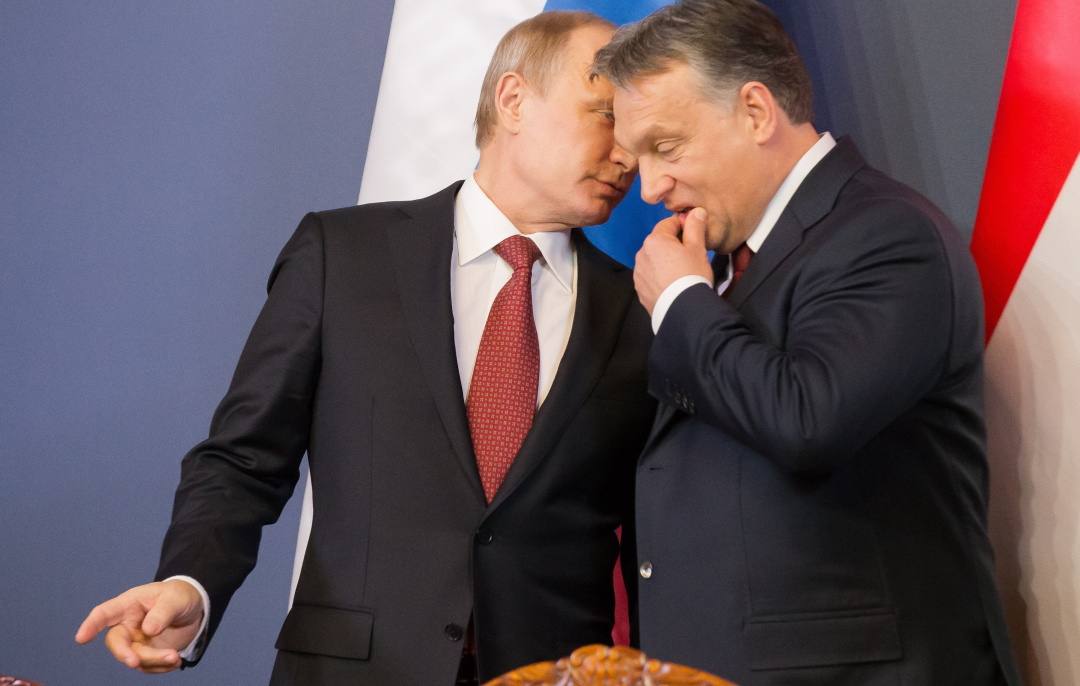
To put it bluntly, the diplomat believes, the whole situation should be "put on freeze" for now. And after the situation in Hungary changes, we will revisit all the issues that have accumulated in our bilateral relations.
"We will then return to them on a completely different legal basis. That’s because now it’s absolutely hopeless to talk about anything with Orbán or Szijjártó. You have seen for yourself what they have come to – accusing our country of violating their sovereignty. Although they’ve simply been told that Hungary is doing things that are counterproductive, let alone unethical – not so much in the context of Ukraine but rather in the context of European solidarity. What can we say here? They are good students of their Moscow-based teachers," Volodymyr Ohryzko emphasized.
As for Ukraine's policy toward Hungary, political scientist Oleksandr Yusupov says it is obviously necessary to change the approach to the one that’s tougher and longer-term.
"Our Foreign Ministry's attempts to quickly normalize relations with Budapest, by minimizing criticism of unfriendly steps and other concessions, including through involving Hungarian officials in the implementation of the Ukrainian education law, have yielded no results," said the expert.
Moreover, Hungary's actions have become even less constructive.
At the same time, it should be borne in mind that "Hungary is a member of the EU and NATO, so this narrows the space for Ukraine to respond. Therefore, Kyiv should focus not on confrontation with Budapest in international organizations, but on systematically reducing its influence in Zakarpattia, where many politicians, businessmen, and media outlets openly work in Hungary's favor, helping mobilize votes for authoritarian Prime Minister Viktor Orban," Yusupov said.
As for the EU's reaction, the political expert says, it is unlikely that Brussels' reaction to the deepening crisis in Hungary-Ukraine relations will go far beyond the traditional claim they cannot interfere in bilateral relations.
"Especially since the EU is now busy with more significant problems, such as a sharp gas hike, negotiations with the United States in the field of trade, and the Afghan refugees issue," added Oleksandr Yusupov.
"Signing agreements with anyone is, in fact, Hungary's sovereign right. However, when it comes to such a sensitive issue for Ukraine as gas, and Russian gas, in this sense there can be no question of an exclusively economic context of bilateral relations, "- said political scientist Dmytro Tuzhansky.
Finally, Budapest must not just realize, but begin to take into account in its moves that the gas issue, as well as language, education, etc., can be used by Russia against both Ukraine and Hungary.
"I am sure that Hungary doesn’t want a war in Europe, and neither does it want any new aggravations. But this requires relevant action. Hungary, together with Slovakia and Poland, should become a guarantor of Ukraine becoming part of all EU energy projects. It is important that they consider how part of Central Europe will live infrastructure-wise once Nord Stream 2 is launched," the expert emphasizes.
It is, first of all, about the gas reverse flow, which Ukraine has in fact been applying since 2014.
"The key reverse-flow gas supplier is Slovakia, but Hungary also can and should become one. Second, they guaranteed this reverse flow. This is besides the fact that it really is cheaper and more profitable for Hungary and Slovakia to continue getting their gas through Ukraine."
So there must really be something like "good neighborliness." Not in the public domain, as it would probably harm Hungary, but in real action, in frank conversations…
"Hungary must honestly answer how it sees Ukraine – as its partner, simply a neighbor of a sovereign state, or a bargaining chip that is playing or trying to play exploiting the imperial plans of the Kremlin and Putin. It’s either this or that. Without this frank talk, nothing will change in the relations between Ukraine and Hungary. And these disputes, these conflict situations – over language, education, passports, and now gas – will keep arising," Dmytro Tuzhansky concluded.
Myroslav Liskovych, Kyiv
im



